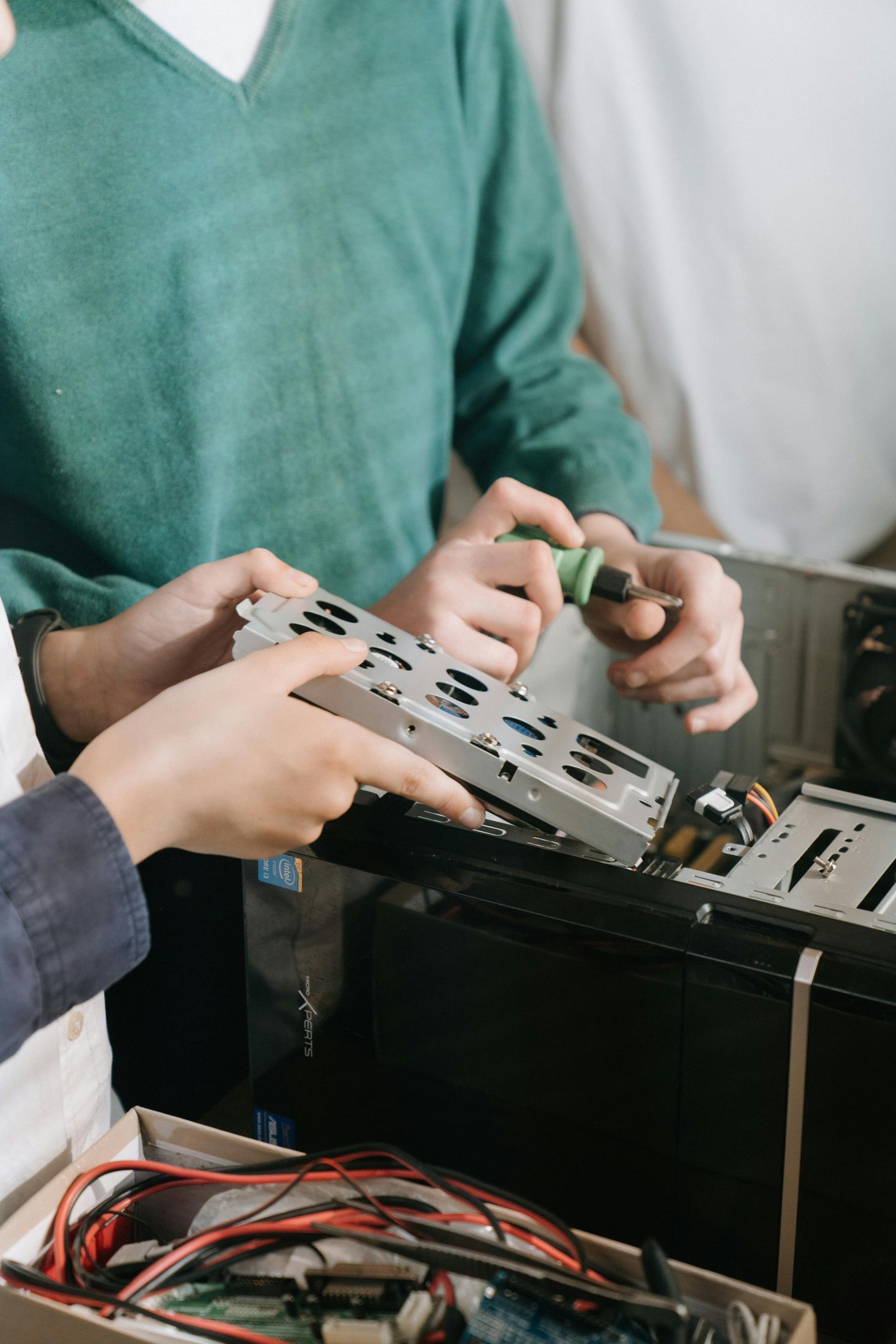QUICK GUIDE TO A.I. AND DATA CENTRES
Why A.I. in colocation data centres is a game changer

By Jamieson Lee Hill, June 19th, 2023
Introduction to A.I. and its applications in data centres
Data centres are at the leading edge of technology and innovation in today’s world. A.I. is part of the strategy for colocation data centres to enhance their efficiency, security and reliability. Let’s delve into Artificial Intelligence in data centres and why it is being hailed as a game-changer for the industry.
The Benefits of A.I. in Data Centres
Within a colocation data centre, A.I. systems can perform natural language processing, image recognition and decision making. They can also monitor and optimise performance, predict the maintenance needs, and improve the energy efficiency of the data centre. In fact, the predictive aspect basically means that A.I. spots problems before they occur. It analyses data from sensors and other sources to identify anomalies and issues e.g. the A.I. can spot if a server is using more energy than normal. In this sense, it is preventative because it can stop a problem before it becomes critical.
Energy Efficiency With A.I.
Likewise, A.I. can also identify ways to be energy efficient to reduce overall energy consumption. Data centres can be energy-intensive, and any reduction in energy usage lowers the operating costs and environmental footprint. Also, A.I. can optimise cooling and airflow in data centres. This lowers energy usage without affecting performance. Finally, A.I. can predict when equipment is likely to fail and so maintenance can be scheduled at times when energy usage is lower.
Enhanced Performance, Reliability & Sustainability
AI offers great potential to enhance the performance, reliability, and sustainability of colocation data centres, and can play a critical role in optimizing the performance. Leveraging machine learning algorithms, AI monitors and analyses data generated by the data centre, including server utilization, power usage, cooling systems and other systems.
A.I. Neural Networks
A.I. consists of computers working together, “...in neural networks that emulate the learning process of the human brain to solve new challenges. It’s a process that requires lots of computing horsepower, which is why the leading players in the field have moved beyond traditional CPU-driven servers.”
Source: Datacenterfrontier.com, Dec 15th, 2022
META and Cutting Edge A.I.
Last autumn the global brand Meta set out a roadmap for a gradual change to water-cooled, A.I. infrastructure. This system would implement cold plates to supply direct-to-chip cooling on GPU servers. At first, this would be achieved using a rear-door heat exchanger along with air-assisted liquid cooling. Then, they would use a facility water approach for when thermal loads go beyond the limits of the rear-door heat exchanger.
After this, they would probably need piping to provide chilled water to cool the rack. Meta unveiled their new facility to house its Research SuperCluster or RSC. This could become the fastest A.I. system in the world today when the project is completed. The GPU-powered infrastructure is also air-cooled and uses an InfiniBand Network with a liquid-to-liquid cooling distribution unit.
A.I. Risks in Data Centres
On risk is that A.I. systems could become overly reliant on historical data, leading to biased decision-making or sub-optimal performance. Furthermore, there is a need for A.I. systems to be properly integrated with other systems and processes, including management tools and reporting frameworks, for them to be truly effective.
Reflections
A.I. technology has massive potential to transform the colocation data centre industry. We have already seen its ability to improve performance, reduce energy usage, and predict maintenance needs. Without doubt, A.I. is becoming a crucial tool for colocation data centres across the world.
Would you like to know about how colocation data centre and cloud computing services can help your business? Fill out the contact form below and let’s talk.
Sources
- https://www.ip-house.co.uk/ - IP House website for more information on their services
- https://www.techradar.com/news/how-ai-will-transform-the-data-center - TechRadar article on the transformation of data centres with A.I.
- https://www.datacenterknowledge.com/artificial-intelligence/where-ai-applicable-data-center - Data Center Knowledge article on the applicability of A.I. in data centres
- https://www.cbronline.com/opinion/the-role-of-ai-in-data-centres - CBR Online opinion piece on the role of A.I. in data centres
- https://www.datacenterdynamics.com/en/analysis/artificial-intelligence-in-the-data-center-a-primer/ - Data Center Dynamics primer on A.I. in data centres
- The impact of A.I. on your data centre https://www.gavstech.com/the-impact-of-ai-on-your-data-center/
Contact Us











